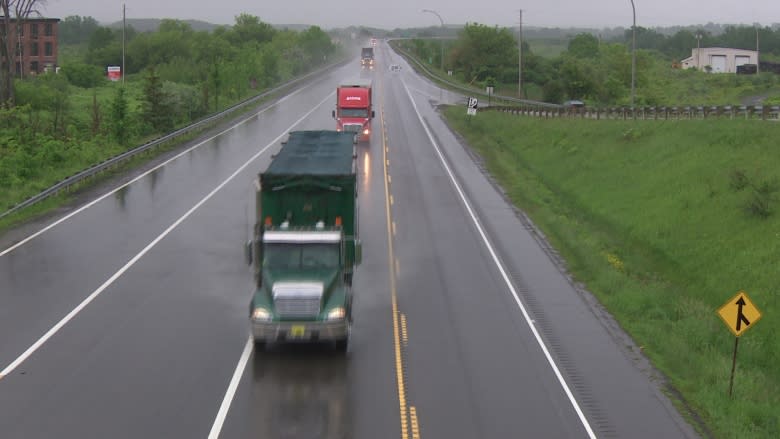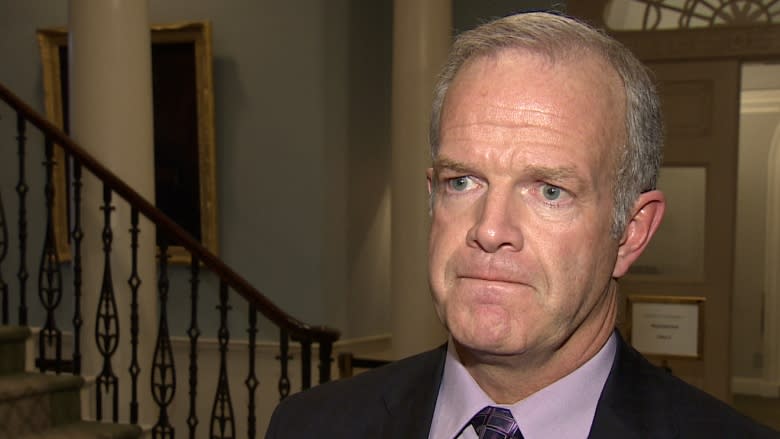N.S. highway workers awarded 'bittersweet' collective agreement after lengthy fight
After nearly four years locked in a labour dispute, about 1,000 provincial highway workers have a new collective agreement, but the union says Bill 148 has made it "bittersweet."
The deal, released Tuesday, follows one day of mediation between members of CUPE Local 1867 and the Department of Transportation and Infrastructure Renewal. The two sides have been in negotiations since November 2014.
In the meantime, the province signed the controversial Bill 148, which defines a wage package for public sector workers without a contract. Under the new legislation, there are no wage increases in the first and second year of Local 1867's six-year agreement.
Increases retroactively apply as of Nov. 1, 2016, for a seven per cent increase over the course of the agreement.
"The entire … outcome of this negotiation, as far as the union is concerned, is somewhat bittersweet because of the spectre of Bill 148 that loomed over the entire round of negotiations and truly took away what we would consider to be free collective bargaining," said Peter Baxter, CUPE national representative and chief negotiator.
Union asked for arbitration
The agreement's most important win, according to Baxter, is the move toward wage parity for mechanics and mobile service mechanics, which both received adjustments of $1.50 per hour.
The union was also able to keep a memorandum that deals with winter work, limiting the province's ability to hire outside contractors, said Baxter.
The new deal allows eligible workers to be paid the public service award early if they've been employed as of March 31, 2015. Bill 148, however, has removed the award for employees hired after that.
The workers, who provide maintenance, construction and snow removal on Nova Scotia's highways, do an essential service, said Baxter, but they don't have the ability to strike under the Highway Workers Collective Bargaining Act.
"Although we were able to add two years to the collective agreement in keeping with what's now a pattern settlement, our membership would have much rather had the ability to put all of the issues before an arbitrator and hope to have sought a better outcome," he said.
Province happy with decision
On Nov. 29, 2017, the union made a formal application that the matter go to arbitration. Arbitrator William Kaplan released his decision on Tuesday.
Minister of Labour Relations Mark Furey said he welcomes the decision.
"This is in line with other recent settlements, including all other civil service employees. We remain committed to meaningful collective bargaining with public sector employees, while reaching agreements that are affordable for taxpayers," Furey said in a statement.
CUPE is among several labour organizations that are challenging Bill 148 in court, but Baxter admits they have a long way to go.
"These charter challenges can sometimes take up to a decade to resolve. So we don't expect that there's going to be any resolve on this any time soon," he said.
Read more articles from CBC Nova Scotia



